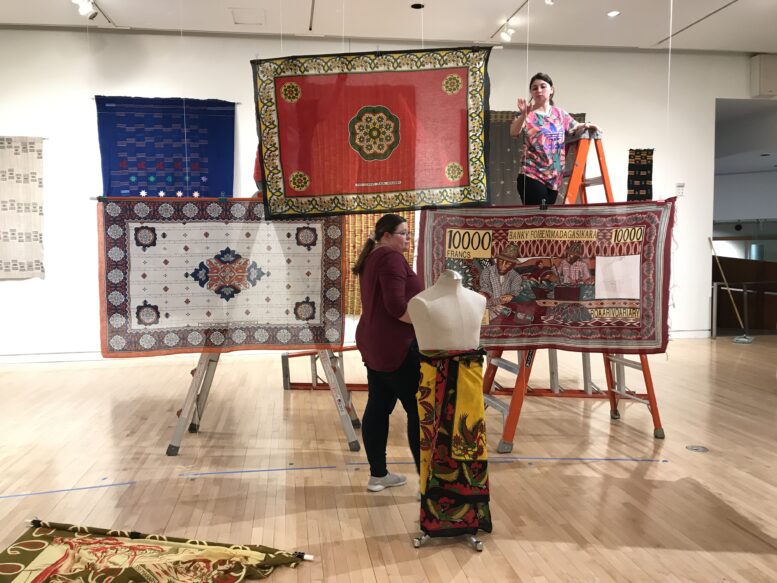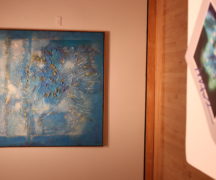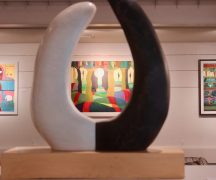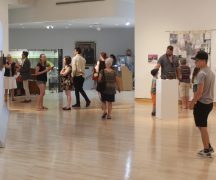By DAVID DUPONT
BG Independent News
“Threads: Weaving Connections of African Life and Cultures,” which features items collected by Professor Rebecca Skinner Green, will be on display in in the e Dorothy Uber Bryan Gallery in the BGSU Fine Arts Center, Wednesday, April 3 through Friday April 5 with an opening reception Wednesday from 5-7 p.m.
“Threads” is the capstone project for the Professional Practices in Art History, a course for graduate and undergraduate students, both art history and studio art majors. The students in the class worked on all aspects of the show, including a catalog that will accompany it.
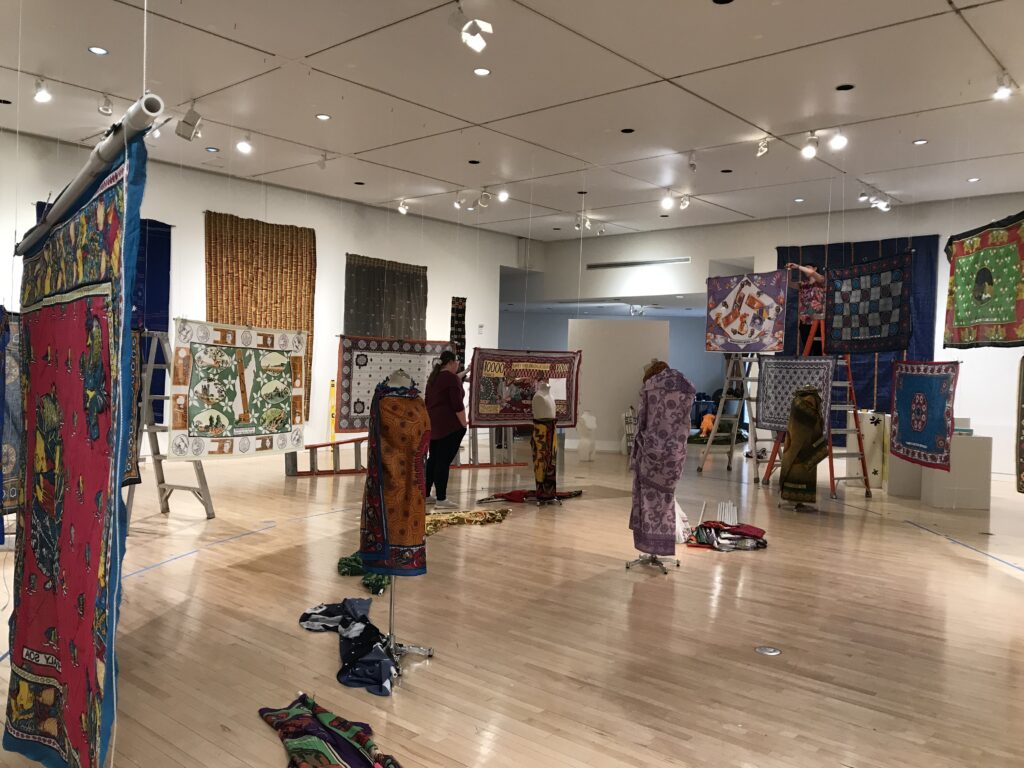
Originally the plan was they would curate an online exhibit featuring items from the collection of the national museum of Trinidad and Tobago, which is closed for renovations. Then, Green said, the Bryan Gallery was made available for an in-person show. That was a preferable venue.
But there wasn’t enough time to identify an artist or other focus, so Green looked homeward.
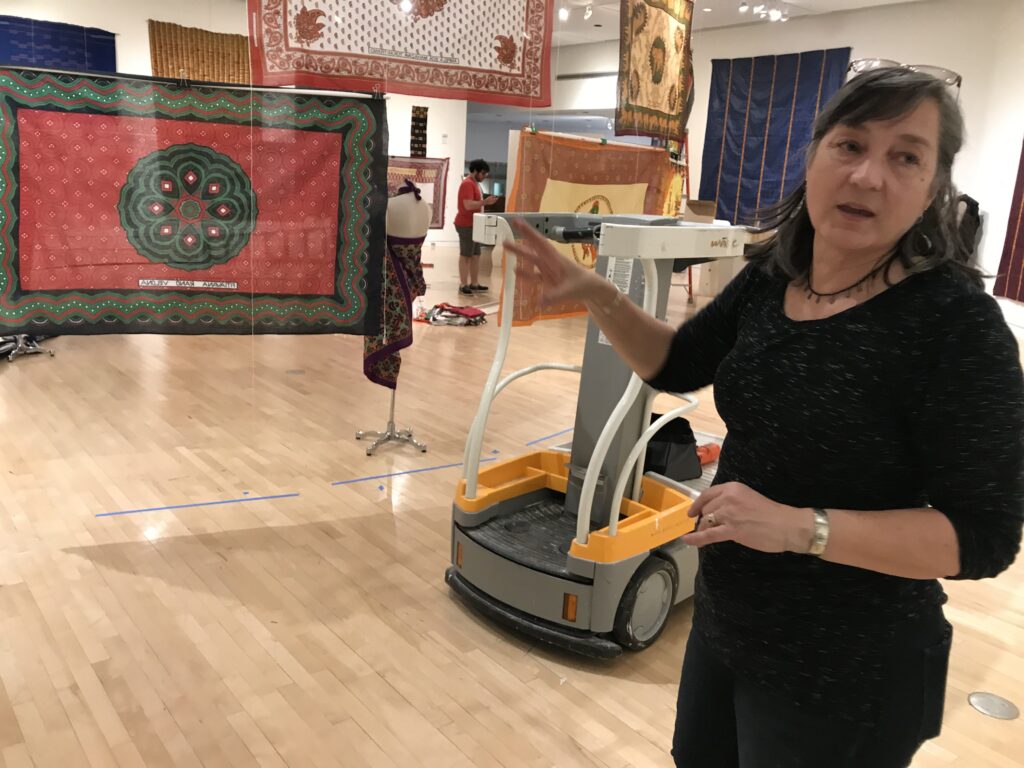
The oldest pieces, Green said, were given to her by her grandfather. He and her grandmother traveled to Ghana in 1960. The California-based steel company he worked for was a subcontractor on the construction of the Akosombo Dam in Ghana, a major project that provides electricity for a large area of West Africa.
Through her grandparents, she was exposed to “my mother’s sewing basket and different things around my home that I didn’t know as a kid were from Africa.”
When she was in college, her elder sister and brother-in-law joined the Peace Corps and were sent, coincidentally, to Ghana. She visited them one summer. In preparation for the trip, she took a course in African art, not realizing how rare an opportunity that was for an undergraduate. The next summer, after her sister and brother-in-law had finished their tour, she traveled with them to Kenya.
This inspired Green, an art history major, to change her concentration to African Art.
Her graduate work focused on Madagascar, where she has lived for extended periods of time. When she took a position on the School of Art faculty she started collaborating with ethnomusicologist Steve Cornelius, who organized residencies for students in Ghana.
All those experiences are reflected in the work exhibited in “Threads.” The exhibit includes work from Madagascar, Ghana, Kenya, and the Ivory Coast.
The title reflects preponderance of textiles in the show, including burial cloths and proverb cloths, as well as clothing that Green has worn.
The proverb cloths include a saying and an image, not necessarily related to the saying. They can be worn on the body or cover plate of food of food or wrapped around the head. They make a statement however they are used.
Green purchased these items from the creators themselves, or from market vendors in the case of the proverb cloths.
The exhibit also includes contemporary art in the space in the rear of the gallery as well as folk objects that are displayed in the glass cases in the lobby. Those objects have already been on display and will remain so through the end of the semester. Included are toys and coffin models.
The coffins illustrate the practice, developed in the past 100 years or so, of creating caskets that reflect the deceased’s passion in life. One is in the shape of a chili pepper, another in the shape of an ear of corn. Yet another is a bottle of beer. While another is a boat.
Three high quality replica masks are also in the case. Green noted explicitly she has replicas, because “I have no business having sacred art.” These are, though, the only replicas in the exhibit.
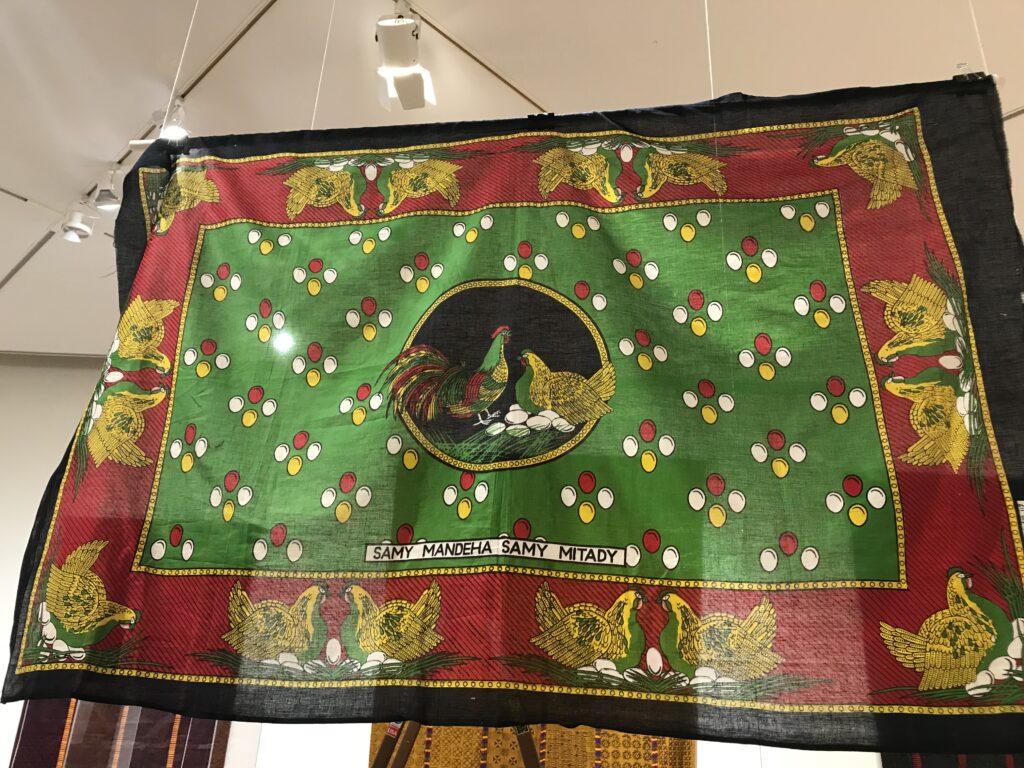
“Threads” celebrates the connections of community and family, she said.
Those kinds of connections played an important role in staging the show.
The College of Musical Arts provided funding to hire Senegalese kora player Mady Kouyate who will perform at the reception. The exhibit got support from the School of Art’s the recently established Ring Fund. The Fashion Marketing program supplied the mannequins to display the dresses, and three Thompson Scholars helped sew the folds at the top of some of the cloths so they could be hung for display.

